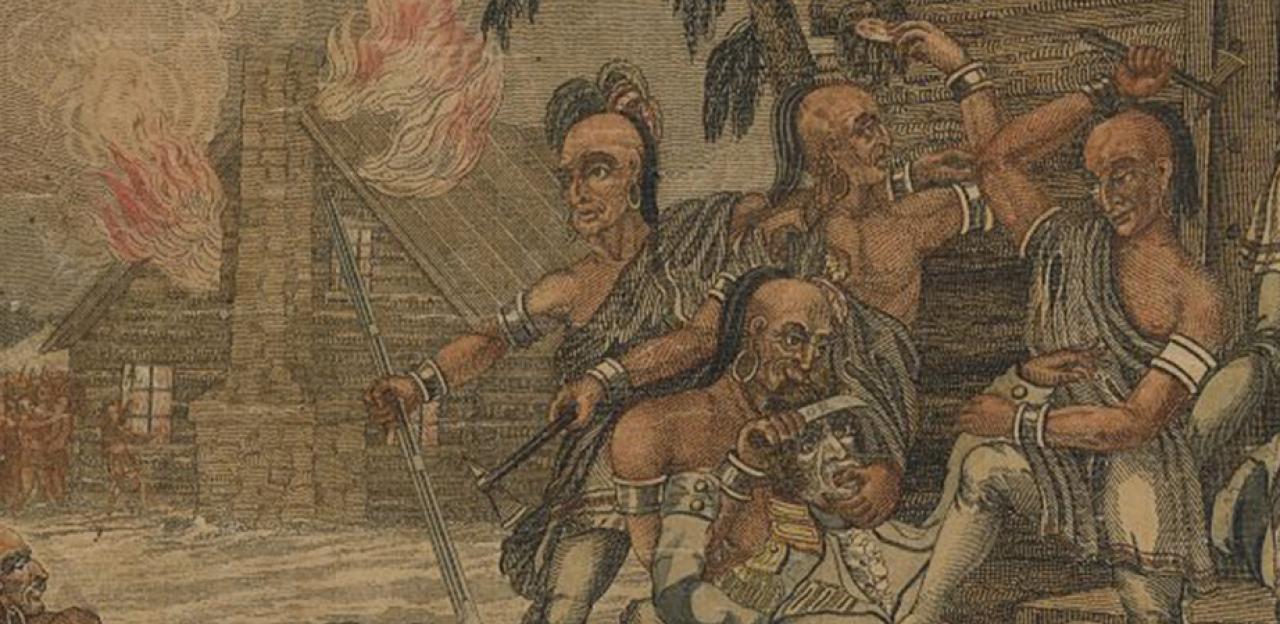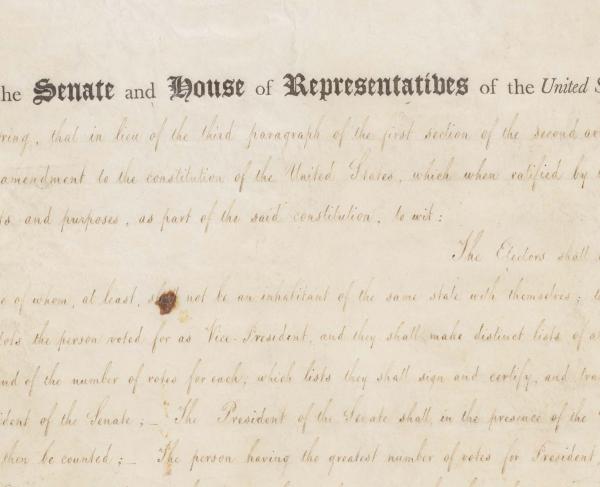"Remember the Raisin"

The Battle of River Raisin occurred over the course of several days in the middle of January 1813 near Frenchtown, Michigan Territory. Now known as Monroe, the flat, lush farmland lay on the western end of Lake Erie, bordering British held Upper Canada, about 40 miles south of Fort Detroit. Originally home to the Potawatomi people it became a key trade route for French fur trappers in the middle part of the eighteenth century.
The Michigan Territory became a focal point shortly after war broke out between the young United States and Great Britian in June, 1812. U.S. forces set their eyes on the capture of Upper Canada. The war effort received a major blow when Brig. Gen. Isaac Hull surrendered the Northwestern Army and Fort Detroit to Brig. Gen. Isaac Brock on August 16.
The following month, President James Madison appointed former governor of the Indiana Territory and current brigadier general in the Kentucky militia, William Henry Harrison the new commander in the Old Northwest. Madison charged Harrison with rebuilding the American army in that theatre and the recpature of Fort Detroit. Despite the onset of winter, Harrison began his campaign and ordered a column under Brig. Gen. James Winchester to the Maumee Rapids.
Harrison strictly forbade Winchester from advancing beyond the Rapids, however, with reports of a British presence at Frenchtown, Winchester ordered Lt. Col. William Lewis with the 17th U.S. Infantry and elements of the 19th U.S. Infantry north. Lewis arrived on the afternoon of January 18, 1813 and quickly drove the British force from the village. News of the fight prompted Winchester to move north and join Lewis. In addition to the 17th U.S. Winchester mustered a little over 900 men in the form of 1st Kentucky Volunteer Regiment, 1st Kentucky Rifle Regiment, 5th Kentucky Volunteer Regiment. The day after Lewis occupied Frenchtown, British Col. Henry Procter mobilized a force to move against Winchester. Procter's command consisted of British Regulars supported by Canadian militia and warriors from some seventeen tribes led by the war chief Roundhead. His command numbered nearly 1,400.
Before dawn on January 22, Procter's men crept toward Winchester's position. Inexplicably, the U.S. commander failed to post pickets, much to the dissatisfaction of Lewis. The British completely surprised the sleeping Americans. Rousted from their slumber and with their backs to the Raisin River, Winchester's men put up a stiff resistance. The Kentuckians stood on the left against Procter's Canadians and the native warriors while the U.S. Regulars held the right and faced the bulk of Roundhead's warriors.
Procter's artillery soon began to take its toll and the 17th and 19th U.S. steadily fell back toward the frozen Raisin. Their retreat prompted the warriors to attack and they swarmed among the Regulars, inflicting a number of casualties. Winchester was taken prisoner in the melee and sent to Procter. Unable to break through the Kentucky line, Procter ordered Winchester to carry a flag of truce to his men and Winchester agreed. Running low on ammunition and virtually encircled, the Kentuckians surrendered.
Procter withdrew with nearly 500 prisoners but left around 60 of the severely wounded in Frenchtown. The citizens kindly administered care and took the Americans into their homes. Warriors returned to Frenchtown the next morning. The remaining prisoners who could walk were evacuated and those that could not fell victim to the tomahawk. The cry "Remember the Raisin" was born after the battle.
Winchester's defeat marked the second loss of an American force in the Michigan Territory in a little over five months and compelled Harrison to delay his campaign until the spring. He recaptured Fort Detroit at the end of September. On October 5, Harrison caught up with and smashed Procter's force along the banks of the Thames River in Upper Canada. Shouting "Remember the Raisin", Col. Richard Johnson's Kentucky Mounted Volunteers launched an assault that broke through Procter's line and turned the tide of the engagement in the Americans favor.
Related Battles
934
182


